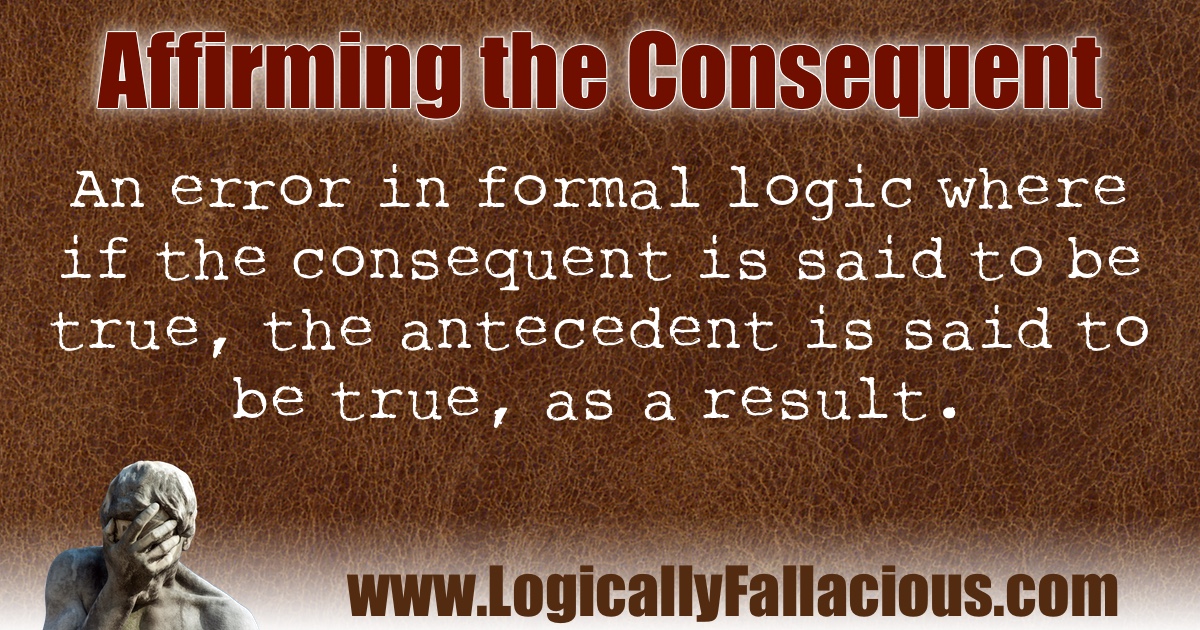(also known as: converse error, fallacy of the consequent, asserting the consequent, affirmation of the consequent)
New Terminology:
Consequent: the propositional component of a conditional proposition whose truth is conditional; or simply put, what comes after the “then” in an “if/then” statement.
Antecedent: the propositional component of a conditional proposition whose truth is the condition for the truth of the consequent; or simply put, what comes after the “if” in an “if/then” statement.
Description: An error in formal logic where if the consequent is said to be true, the antecedent is said to be true, as a result.
Logical Form:
If P then Q.
Q.
Therefore, P.
Example #1:
If taxes are lowered, I will have more money to spend.
I have more money to spend.
Therefore, taxes must have been lowered.
Explanation: I could have had more money to spend simply because I gave up crack-cocaine, prostitute solicitation, and baby-seal-clubbing expeditions.
Example #2:
If it’s brown, flush it down.
I flushed it down.
Therefore, it was brown.
Explanation: No! I did not have to follow the, “if it’s yellow, let it mellow” rule -- in fact, if I did follow that rule I would probably still be single. The stated rule is simply, “if it’s brown” (the antecedent), then (implied), “flush it down” (the consequent). From this, we cannot imply that we can ONLY flush it down if it is brown. That is a mistake -- a logical fallacy.
Exception: None.
Tip: If it’s yellow, flush it down too. Especially, if you are married and want to stay that way.

References:
Jevons, W. S. (1872). Elementary lessons in logic: deductive and inductive : with copious questions and examples, and a vocabulary of logical terms. Macmillan.